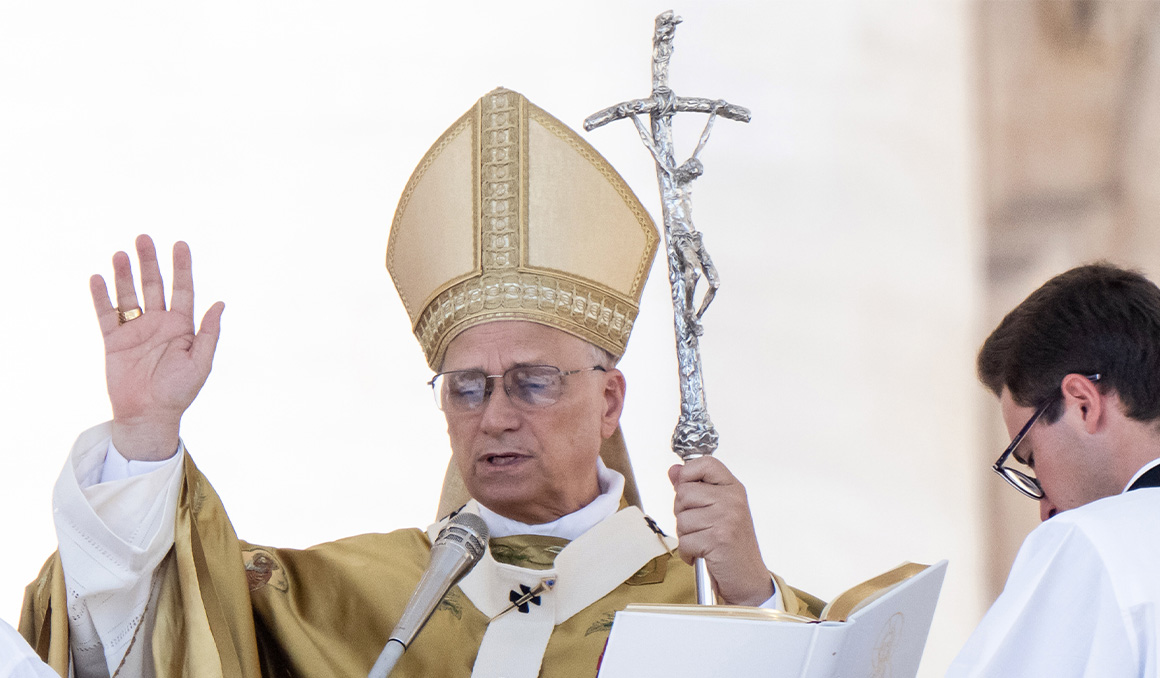Pope Leo XIV proclaimed Saint John Henry Newman a Doctor of the Church Nov. 1, and named him co-Patron of the Church’s educational mission alongside Saint Thomas Aquinas.
“On this Solemnity of All Saints, it is a great joy to include Saint John Henry Newman among the Doctors of the Church,” Pope Leo said in the Nov. 1 homily, “and, at the same time, on the occasion of the Jubilee of the World of Education, to name him, together with Saint Thomas Aquinas, as co-Patron of the Church’s educational mission.”
St. Newman, who converted from Anglicanism to Catholicism in the 19th century, penned 40 books and 21,000 letters, according to Franciscan Media. Among his most well-known works is An Essay on the Development of Christian Doctrine, which argued that the Catholic Church “faithfully embodied the Church of the Fathers,” CatholicVote previously reported.
Pope Leo said in his Nov. 1 homily that “Newman’s impressive spiritual and cultural stature will surely serve as an inspiration to new generations whose hearts thirst for the infinite, and who, through research and knowledge, are willing to undertake that journey which, as the ancients said, takes us per aspera ad astra, through difficulties to the stars.”
The Pontiff also reflected on the role of teachers and education, urging educators to offer hope to those suffering from pessimism and nihilism. Recalling the late Pope Francis’ 2024 address to participants of the plenary assembly of the Dicastery for Culture and Education, Pope Leo emphasized that “we must work together to set humanity free from the encircling gloom of nihilism, which is perhaps the most dangerous malady of contemporary culture, since it threatens to ‘cancel’ hope.”
He noted that St. Newman penned the hymn “Lead, Kindly Light,” which prays, “Lead, Kindly Light, amid th’encircling gloom, Lead Thou me on;’ ‘Lead, Kindly Light, The night is dark, and I am far from home, Lead Thou me on.’”
“The task of education,” Pope Leo continued, “is precisely to offer this Kindly Light to those who might otherwise remain imprisoned by the particularly insidious shadows of pessimism and fear.”
He urged those present to ensure that schools and universities are places of peace and dialogue. Later he noted that St. Newman’s legacy “includes some very significant contributions to the theory and practice of education.”
He recalled that St. Newman wrote in Meditations and Devotions, “God has created me to do Him some definite service; He has committed some work to me which He has not committed to another. I have my mission—I never may know it in this life, but I shall be told it in the next.”
Pope Leo said that “In these words, we find beautifully expressed the mystery of the dignity of every human person, and also the variety of gifts distributed by God.”
He emphasized the beauty of living out the vocation that God calls each person to.
“Life shines brightly not because we are rich, beautiful or powerful,” he said. “Instead, it shines when we discover within ourselves the truth that we are called by God, have a vocation, have a mission, that our lives serve something greater than ourselves.”
Each person’s contribution “is uniquely valuable,” he added, and said that educational institutions and communities are called to foster and appreciate that contribution.
“Let us not forget that at the heart of the educational journey we do not find abstract individuals but real people, especially those who seem to be underperforming according to the parameters of economies that exclude or even kill them. We are called to form people, so that they may shine like stars in their full dignity,” Pope Leo said. “We can say, then, that from a Christian perspective education helps everyone to become saints. Nothing less will do.”
He concluded by saying that he prays that Catholic education will help everyone come to know their call to holiness and recalled the words of Saint Augustine.
“Saint Augustine, whom Saint John Henry Newman greatly admired, once said that we are fellow students who have one Teacher,” Pope Leo said, “whose school is on earth and whose chair is in heaven.”
